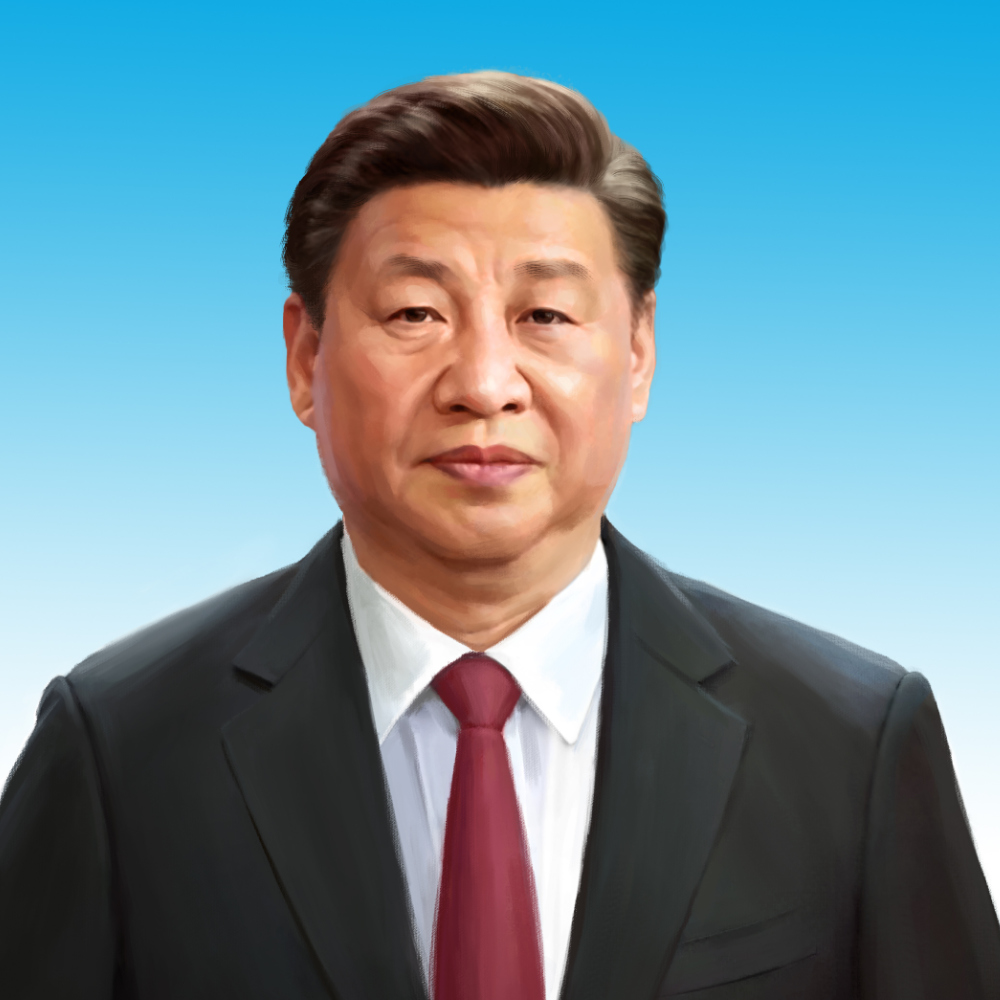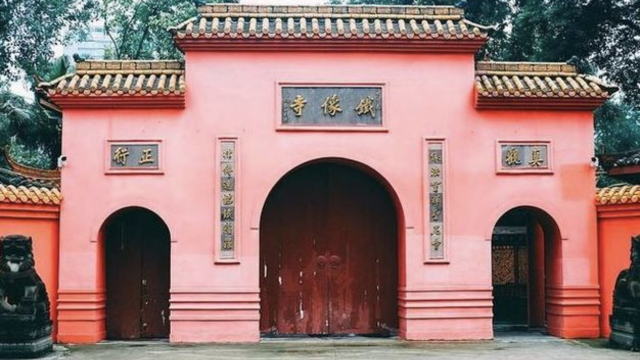“The whole country” is called to study and propagate, both in China and internationally, an idea of the law antithetical to Western democracy
by Massimo Introvigne

Last month, the CCP organized in Beijing what the Party’s People’s Daily called “a major event of great practical meaning and far-reaching historical significance.” The emphatical tone is part and parcel of how the CCP media reports Party events. But this time emphasis was higher than usual, and continued for days and weeks, with hundreds of articles and TV reports in national and local media.
What happened in Beijing in November that was so important? A conference took place on “Xi Jinping’s thought on the rule of law” (习近平法治思想). One of the speakers was Xi Jinping himself. The idea is not new, and has been promoted at least since the 18th Congress of the CCP in 2014. “Rule of law” or “system governed by the rule of law” (fazhi, 法制) has become an ubiquitous slogan. It is not rare to see banners singing the praise of fazhi in different Chinese provinces.
Yet, the emphasis is new. “The whole party and the whole country, the People’s Daily proclaimed, should seriously study and understand Xi Jinping’s thought on the rule of law as a major political task at present and in the future, understand its basic spirit, grasp its core principles, clarify work requirements, and firmly grasp the political direction, important position, and work layout of the comprehensive rule of law.”
In another article, the same daily insisted that, “Xi Jinping’s thought on the rule of law is a major theoretical innovation that has come into being in line with the requirements of the great rejuvenation of the Chinese nation, the latest achievement of the Sinicization of Marxist theory of the rule of law, an important part of Xi Jinping’s thought of socialism with Chinese characteristics in the new era, and a fundamental guide to follow.”
To make this more clear, Li Zhanshu, the chairman of the Standing Committee of the National People’s Congress, regarded as a close associate of Xi Jinping, insisted during an inspection tour in North China’s Shanxi Province that Xi Jinping’s thought on the rule of law offers “fundamental guidelines” to the CCP and the country.
These texts devote several paragraphs to emphasize how important it is for all Chinese to “earnestly study” Xi Jinping’s thought on the rule of law, yet they do not really clarify what it is. We find some more light in a lengthy statement by Chen Yixin, the Secretary-General of the all-powerful Central Political and Legal Affairs Commission of the CCP (with jurisdiction, inter alia, on the police), who, after the conference, offered a detailed ideological comment and exegesis of Xi’s speech. The full text of Chen’s lesson was published on December 9 in the Study Times.
Chen also reiterated that “deepening the study, promotion and implementation of Xi Jinping’s thought on the rule of law is a major political task for the political and legal fronts nationwide at present and in the coming period.” However, it did not limit himself to this, but shed some light on the matter.
To understand both Xi’s speech and Chen’s authorized comment, a short introduction to the concept of rule of law is needed. The rule of law is a basic conquest in the Western journey towards democracy. Where there is no rule of law, citizens are at the mercy of the capriciousness of the ruler. He (more rarely she) can arrest, detain, and execute them just because he had a bad day, or they were in the wrong place in the wrong time. With the rule of law, everybody is subject to clearly established statutes, including the ruler himself. Those in power and the state are as accountable as the common citizens.
The United Nations define the rule of law as “a principle of governance in which all persons, institutions and entities, public and private, including the State itself, are accountable to laws that are publicly promulgated, equally enforced and independently adjudicated.” This is a classic definition, which a British lawyer of the 18th century would have recognized as familiar, but the United Nations add another important part, that the laws should be “consistent with international human rights norms and standards.”
Enter Karl Marx. He called the rule of law “a great and dangerous illusion” that unfortunately the working classes naively believed in, particularly in the United Kingdom. In fact, Marx and Engels taught in the Manifesto of the Communist Party, the so-called rule of law is “but the will of the bourgeoisie made into a law for all, a will whose essential character and direction are determined by the economic conditions of existence of the bourgeoisie.” In other words, the bourgeoisie first makes a law protecting only its power, then instills in the proletarians the false idea that it is a “universal” law protecting all citizens. Happily, Marx said, the solution was at hand. The Communist revolution would soon allow the proletarians to establish their own rule of law, whose custodian and only authorized interpreter will be the Communist Party.
Readers of Bitter Winter may remember that, in his last book, Xi Jinping insisted that the Manifesto of the Communist Party remains the CCP’s, and his own, fundamental theoretical text. Xi’s idea of the rule of law is, essentially, Marx’s. This means, as Chen explains, that the first commandment of Xi’s thought on the rule of law is that a Communist country such as China “will not copy the models and practices of other countries, nor will it follow the so-called ‘constitutional government,’ ‘separation of powers,’ or ‘independent judiciary’ of the West.” This is nicely said. Constitutional government, separation of powers, and an independent judiciary are the essential components of the rule of law according to the United Nations’ definition.
But not according to Xi’s “new” definition. Building on Marx, Xi regards the rule of law as the principle that all should respect the laws, but the laws should respect the CCP, and be interpreted according to the CCP’s orders, directives, and interests. In Chen’s authoritative words, Xi’s thought’s core principle is that “the socialist rule of law must adhere to the CCP’s leadership.” The legal system should work “correctly handling the relationship between politics and the rule of law, and deeply understanding that the Party and the law, the Party’s leadership and the rule of law, are highly unified.” This means that “the socialist rule of law must adhere to the CCP’s leadership.” In the United Nations’ definition and the democratic understanding of the concept, rule of law means that the government too should obey the law. In Xi Jinping’s thought on the rule of law, the law should obey the government or, more precisely, the CCP.
Under the democratic concept of the rule of law, judges and others involved in the justice system should faithfully apply the law. French philosopher Montesquieu famously said that a good judge is “only the mouth that pronounce the words of the law.” Under Xi Jinping’s thought on the rule of law, in Chen’s words, China should “make it a basic requirement for legal service personnel to uphold the leadership of the CCP.” The law should be used, or not used, or if necessary misused, as the CCP deems fit.
This is vintage Karl Marx, as put in practice in the Soviet Union of old. Yet, there is something new added by Xi Jinping. He insists that it is necessary to promote his Marxist concept of the rule of law “in China and in foreign countries.”
The Center for Strategic and International Studies provides interesting translations of Chinese texts. On December 2, it offered the English translation of an important study by Tang Aijun, a researcher at the CCP Central Party School. The study is on the Chinese concept of “ideological security,” and helps to understand what Xi Jinping means when he says his rule of law ideology should be exported to “foreign countries.”
Tang explains that Xi Jinping taught that entire countries were “thrown into disarray” by trying to compel them to accept the “Western” concept of human rights and “universal values.” But in fact, Xi said, the so-called universal human rights and “‘universal values’ reflect the values of Western capitalist interests and are an ideological tool in the service of Western capitalist politics.” Marx’s criticism of the democratic rule of law as a tool created by the bourgeoise to deceive the proletarians becomes international. The rule of law as commonly understood and defined by the United Nations is denounced by Xi as a tool created by the West to compel countries such as China, North Korea, Turkmenistan, or Eritrea (and many others) to accept democracy.
It is not difficult for Xi Jinping to find allies in his international promotion of a new “thought on the rule of law,” which is in fact the reversal of the rule of law and the return to a society where “quod principi placuit, legis habet vigorem,” as Ulpianus summarized in the 3rd century the system of the late Roman Empire: “the law is what pleases the prince.” Substitute the prince with the CCP, and you have Xi Jinping’s thought on the rule of law, a very convenient theory for the Kim Jong-uns of this world.
“Why must we criticize ‘universal values?’, Tang goes on to say. Because they point to the construction of a certain state system and its standards, accepting ‘universal values’ will inevitably result in logically accepting Western systems and models such as private ownership, multi-party systems, and electoral democracy.” A notion of private property that would create real independence from the state, a multi-party system, and free elections are all anathema to the CCP. This is what is taught in the CCP’s Party Schools, and the basis for the coalition Xi proposes to all the world’s tyrants who see democracy as a threat to their power.
Sometimes, Chinese propaganda insists that, unlike the West, China does not try to export its ideology abroad. Xi’s own speeches prove that this is just propaganda, and that in fact “Xi Jinping’s thought on the rule of law,” with its vitriolic Marxist criticism of democracy, is intended for export and not for the Chinese domestic market only.
Source: Bitter Winter












